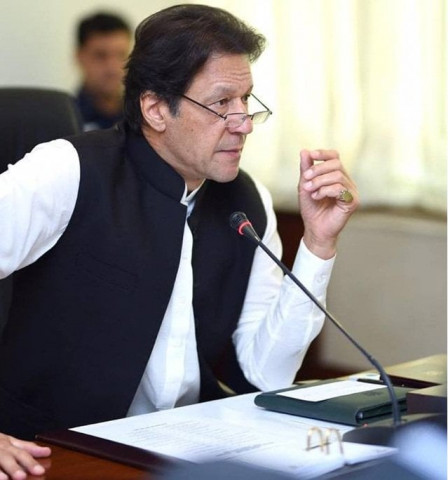Parched of imagination
There was hardly any reason to assess the performance of the Sindh govt during lockdown in light of its past record

Crisis brings a rare opportunity to leaders to reunite with their people and to cast aside old ways of doing business, which is usually not possible in normal times, considering that the majority supports the status quo for its comfort. Other than Pakistan, which has refused to take this high road most of the countries have revamped their system to adjust to the Covid-19 induced new normal. Instead of treating it as a healthcare emergency, both the government and the opposition have been using the pandemic as a political football.
Not that Pakistan is the only country giving a political cover to the pandemic. India and the US have even compartmentalised corona into a Muslim and China virus. Not to speak of the Black Lives Matter movement in the wake of George Floyd’s murder. What sets Pakistan apart in its crisis handling from the rest of the countries is the toxic combination of petty, self-centred, and biased politics. As the world saw some real fights — the Dalit against Hindu chauvinism, the black against white supremacy — the Pakistanis had to contend with the pseudo spatting among politicians.
Blaming opposition for the spread of Covid-19 among the parliamentarians, since the latter insisted on reviving the session, is wrong. Parliament should be revived so that instead of getting into petty bickering, the lawmakers find a purpose of the objective to fight relevant battles. Only if they choose to see, their table is already cluttered with new challenges: rising unemployment, businesses closing down and children forced to join the labour market to fend for themselves and their families.
Three things have led to an increase in deaths from Covid-19. One, the government’s inability to understand the importance of lockdowns; two, the absence of trust between the government and its citizens — nobody ever took social distancing seriously; three, self-medication to cure the virus because people feared that if they went to the hospital they would be poisoned. Most of the medicines people took on their own further depleted their immune system making cure complicated. People went to hospitals late in the day when their situation had worsened, making treatment difficult.
What brought us to this pass? The government’s frequent policy shifts. The country was held hostage to the debate on lockdown and no lockdown, smart lockdown, and elite lockdown pendulum. In between hanged the begging bowl. We wanted to walk both ways — as a victim and as a beneficiary. We asked for more debts and sought relief from G-20 countries. This attitude of the rulers further polarised the country on the definitions of the virus. If in the beginning the pandemic was considered some Western ploy to control the Third World, later it was viewed as a sinister game by the government to increase deaths from corona and thus claim debt relief.
With his heart divided between the haves and the have-nots, Imran Khan turned out to be an indecisive leader with absolutely no understanding of opportunity cost and substitution effect to turn around the economy. He is worried that people may die of poverty if a complete lockdown is imposed but has allowed hoarders to have a field day and price regulators to keep to their usual clumsiness. The result is a sharp spike in the prices of essential commodities because of demand and supply issues. In spite of all his good intentions the road that Imran Khan has taken will only lead to deep waters. In the face of job losses and inflation, the government is expected to accelerate the wheel of justice, and not just rely on the clichéd mechanism of forming investigative committees and accusing the opposition of its follies, apparently to deflect attention.
There was hardly any reason to assess the performance of the Sindh government during the lockdown in the light of its past record. As if we did not have enough of irresponsible national behaviour on display, Cynthia Ritchie was launched to further undermine the PPP government in Sindh. This ill-advised, ill-timed, and half-cooked blame of harassment has not only damaged the cause of many women facing workplace harassment but has also made the government look an appendage to the power that be.
If anything this pandemic has brought to bear is the realisation that the quality of leadership in Pakistan, and by extension its people, has dropped significantly. This probably could be the context in which the Punjab government has made the Quran a compulsory subject in universities. The idea must be to make the future generation intolerant to inequalities, exploitation, and opportunism — some of the major vices eating into Pakistan’s moral fibres. The step is indeed praiseworthy and deserves appreciation. However, the question is: for a state that has failed to implement a Constitution, which has been designed on the lines of the Quran and Sunnah, how does it plan to help universities make the Holy Scripture an instrument of change and development?
The problem is not that we are reading less of the Quran or more of other unnecessary literature. The problem is that we have leadership parched of imagination and hostage to the interest of the elite — the so-called mafias — who are hands in glove with the government.
Published in The Express Tribune, June 18th, 2020.
Like Opinion & Editorial on Facebook, follow @ETOpEd on Twitter to receive all updates on all our daily pieces.















COMMENTS
Comments are moderated and generally will be posted if they are on-topic and not abusive.
For more information, please see our Comments FAQ